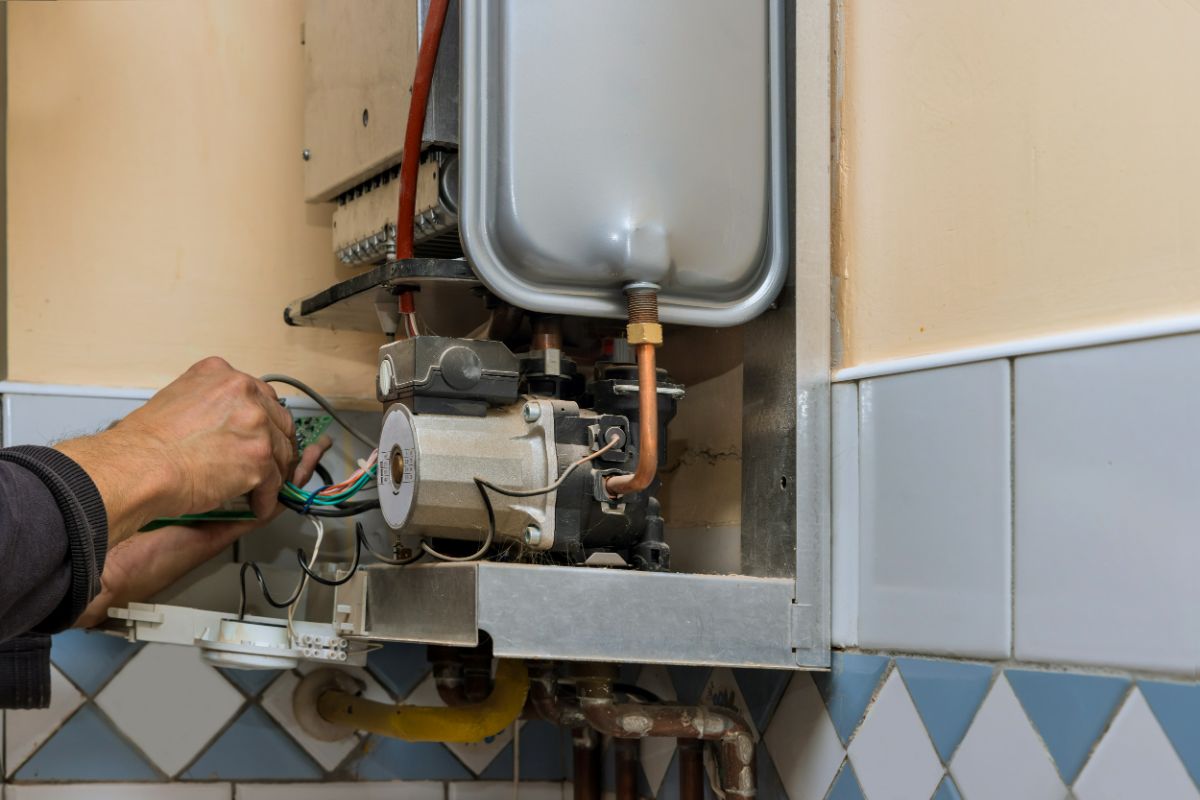Maintaining Your Home's Hot Water System: Essential Guidelines
Maintaining Your Home's Hot Water System: Essential Guidelines
Blog Article
Just how do you actually feel on the subject of Tips on Maintaining a Water Heater?

Warm water is essential for daily comfort, whether it's for a rejuvenating shower or cleaning recipes. To guarantee your hot water system runs efficiently and lasts much longer, normal upkeep is essential. This write-up provides functional ideas and insights on just how to maintain your home's hot water system to avoid disturbances and pricey repairs.
Intro
Keeping your home's hot water system might appear complicated, but with a few basic steps, you can guarantee it operates efficiently for years ahead. This guide covers everything from recognizing your warm water system to DIY maintenance tips and recognizing when to call expert help.
Relevance of Preserving Your Hot Water System
Normal upkeep not just expands the life expectancy of your warm water system but also guarantees it runs successfully. Disregarding maintenance can lead to decreased effectiveness, greater energy costs, and also premature failure of the system.
Signs Your Hot Water System Needs Upkeep
Understanding when your warm water system requires focus can stop significant issues. Watch out for indications such as inconsistent water temperature, unusual sounds from the heating system, or rusty water.
Recognizing Your Warm Water System
Before diving right into maintenance jobs, it's useful to comprehend the basic elements of your hot water system. Usually, this includes the water heater itself, pipelines, anode rods, and temperature level controls.
Monthly Upkeep Tasks
Regular regular monthly checks can assist capture small problems before they rise.
Flushing the Hot Water Heater
Purging your hot water heater removes sediment buildup, improving performance and lengthening its life.
Monitoring and Replacing Anode Rods
Anode rods prevent corrosion inside the container. Examining and replacing them when broken is crucial.
Checking and Changing Temperature Level Setups
Readjusting the temperature setups guarantees ideal performance and security.
Do It Yourself Tips for Upkeep
You can do a number of maintenance tasks yourself to maintain your hot water system in top problem.
Looking for Leakages
Frequently check pipes and connections for leaks, as these can lead to water damage and higher bills.
Evaluating Pressure Relief Valves
Examining the stress safety valve ensures it functions correctly and avoids extreme pressure buildup.
Insulating Pipes
Insulating warm water pipelines decreases heat loss and can save power.
When to Call an Expert
While DIY maintenance is useful, some problems require professional competence.
Complicated Problems Needing Professional Help
Instances consist of major leaks, electric issues, or if your water heater is constantly underperforming.
Routine Professional Upkeep Advantages
Expert maintenance can include complete examinations, tune-ups, and ensuring conformity with safety and security criteria.
Conclusion
Regular maintenance of your home's warm water system is important for effectiveness, durability, and price financial savings. By following these tips and recognizing when to seek professional aid, you can make sure a trustworthy supply of hot water without unanticipated interruptions.
How to Maintain and Troubleshoot Your Heat Pump Water Heater
Know Your Water Heaters Error Codes and How to Clear Them
If your unit is WiFi-enabled, pay attention to the notifications your water heater system sends you and make sure to read and investigate error codes as soon as possible. If your machine has an error code readout on the unit, use your owner’s manual for the hot water heater and find out what the codes mean and how they might be affecting your water heating system. Follow the manufacturer’s directions to assess the issue and clear the code, or call a licensed plumber to take care of that for you.
Change Your Filters Monthly or As-Needed
Heat pump water heaters come equipped with an air filter, usually on the top of the unit where the water heater pulls air into the compressor. Check the filter every few months (put a reminder in your smartphone to make sure you don’t forget!). This will keep peak air flowing into your unit, helping it to work as efficiently as possible and resulting in energy savings over time.
Clean the Condensate Lines
Heat pump water heaters have a condensate drain. As the unit dehumidifies the surrounding area, the moisture has to go somewhere! Make sure to clean this condensate line every year to ensure it doesn’t get backed up with sediment or mold.
To clean the condensate lines, pour a cup of bleach in the access opening of the unit to kill any mold or mildew. Check that the bleach or water flows freely out of the lines, and unclog the lines if needed.
Flush Your Heat Pump Water Heater Annually
Heat pump water heaters are also sometimes referred to as hybrid heat pump water heaters. This is because they contain a backup heating electric heating element inside the tank: the same kind of anode rods used in traditional electric water heaters. That anode rod can become corroded over time from the minerals in your water, and it can begin to decay, break entirely, or heat less efficiently as it becomes corroded. One way to minimize or avoid this corrosion is by flushing your heat pump water heater annually. Just like flushing standard electric or gas water heaters, flushing your water heater is something that any homeowner can DIY if they have a few basic tools and some gumption.
https://www.waterheatersnow.com/blog/how-to-maintain-and-troubleshoot-your-heat-pump-water-heater

I came across that article on How to Maintain Your Water Heater & Prolong its Life while doing a lookup on the search engines. For those who liked our blog post if you please don't forget to share it. Thanks for going through it.
Schedule Now Report this page